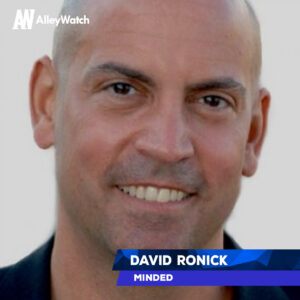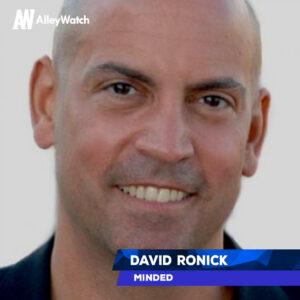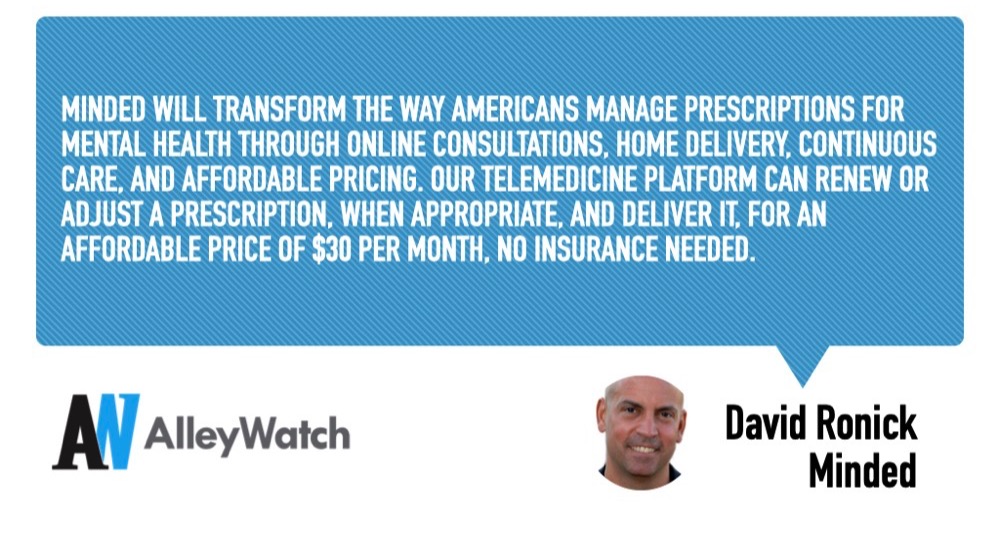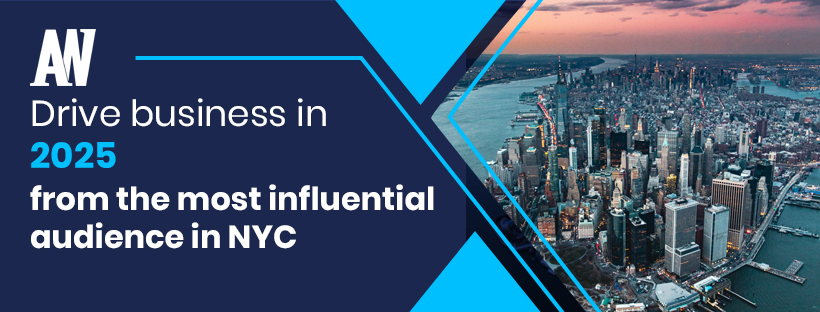The pandemic has exacerbated the mental health crisis that the US has been facing for many years. According to the US Census Bureau, 42% of Americans reported symptoms of anxiety or depressions, an increase of 11% from 2019 levels. 15.8% of adult Americans are taking some form of mental health medication. Minded is a recently-launched psychiatric telehealth platform that allows patients to quickly and efficiently refill their mental health prescription needs. The availability of virtual psychiatric services and access to medication has been absolutely critical during the pandemic, at a time when people are struggling with an array of issues. The platform pricing starts at an accessible $30/mo fee versus having to pay several hundred dollars for a single in-person visit, no insurance is required, and deliveries for prescriptions are done in less than 24 hours. Minded is currently available throughout the city and on Nassau County and is currently providing medication for depression, anxiety, and insomnia with plans to expand both geographically and in conditions treated.
AlleyWatch caught up with Cofounder, CEO, and serial entrepreneur David Ronick (cofounded Stash) to learn more about the launch of Minded, the company’s future plans, and latest round of funding, which brings the total funding raised to $5M.
Who were your investors and how much did you raise?
Minded raised $2.8 million in a pre-seed round last April and an additional $2.2 million in seed funding at launch to total $5 million, led by Streamlined Ventures and Link Ventures, with participation by TheFund.vc and high-profile angels including Richard Park (Founder of CityMD) and Sheila Marcelo (Founder of Care.com).
 Tell us about the product or service that Minded offers.
Tell us about the product or service that Minded offers.
Minded is a direct-to-consumer telehealth company making it easy and affordable to renew, refill, and adjust prescriptions for depression, anxiety, and insomnia. Their goal is to alleviate the pain points patients go through when managing mental health prescriptions like travel, wasted time, costly appointments, insurance headaches, and visits to the pharmacy by using telemedicine to quickly refill prescriptions, starting at $30/month.
What inspired the start of Minded?
Like many people, I hit a rough patch that led me to seek mental health treatment and medication. Once I found what worked for me, I didn’t want to go to the doctor every 90 days to pay $300 for a five-minute appointment just to renew what I was already taking. I wanted to take the frustrating, time-consuming, and expensive process of renewing his prescription and make it magically simple in a way that can improve the lives of millions of people.
How is Minded different?
Minded is the first telehealth company to specialize in helping long-term users of mental health medications manage their ongoing prescriptions.
Minded will transform the way Americans manage prescriptions for mental health through online consultations, home delivery, continuous care, and affordable pricing. Our telemedicine platform can renew or adjust a prescription, when appropriate, and deliver it, for an affordable price of $30 per month, no insurance needed.
What market does Minded target and how big is it?
Minded is currently available for people who regularly take prescription medication for mental health in New York City and Nassau County, with plans to expand into other major cities and states in the next few months.
What’s your business model?
Minded charges a membership subscription of $30 per month. We use proprietary technology to provide our board-certified psychiatrists and psychiatric nurse practitioners with information that lets them treat patients effectively and efficiently.
How has COVID-19 impacted your business?
COVID has accelerated our business by rapidly increasing the adoption of telehealth, reducing the stigma around mental health conditions, increasing the number of people taking mental health medication, and by adjusting regulations that have made it possible to prescribe controlled mental health medications via telehealth.
What was the funding process like?
We raised our first round of capital on April 1 of 2020. Just weeks later, we had our first board meeting, and realized we were going to need “a bigger boat” – COVID had opened the door for us to move much faster. That led us to raise additional capital.
We turned to investors we had worked with previously. Having those pre-existing relationships has made it easier to manage at the board level during COVID.
We raised our first round of capital on April 1 of 2020. Just weeks later, we had our first board meeting, and realized we were going to need “a bigger boat” – COVID had opened the door for us to move much faster. That led us to raise additional capital.
We turned to investors we had worked with previously. Having those pre-existing relationships has made it easier to manage at the board level during COVID.
What are the biggest challenges that you faced while raising capital?
Fortunately, we’ve been through the process many times, have relationships with leading investors, and have track records of building two unicorns – all of which helped with fundraising.
What factors about your business led your investors to write the check?
Timing has been a big factor. Direct-to-consumer telehealth has recently hit a tipping point, thanks to companies like Hims, Roman, and Nurx. Meanwhile, America’s mental health is the worst it has been in over two decades, with more people on medication, and more open conversations.
What are the milestones you plan to achieve in the next six months?
Within the next six months, we plan to prove product-market fit, show that we can grow with attractive economics, and roll out to several other states.
What advice can you offer companies in New York that do not have a fresh injection of capital in the bank?
Take the time to find investors that match your stage and market, and use your network to get strong introductions.
Where do you see the company going now over the near term?
We’ve been pushing out a new release each month, starting with medication for depression at the end of 2020, then adding medication for insomnia in February, and medication for anxiety in March. We’ll continue to iterate and improve based on what we learn from our customers.
What’s your favorite outdoor dining restaurant in NYC
Bar Pitti. It was the first restaurant experience for each of my sons, and it’s our family favorite for the food, service, and cool but informal vibe.






